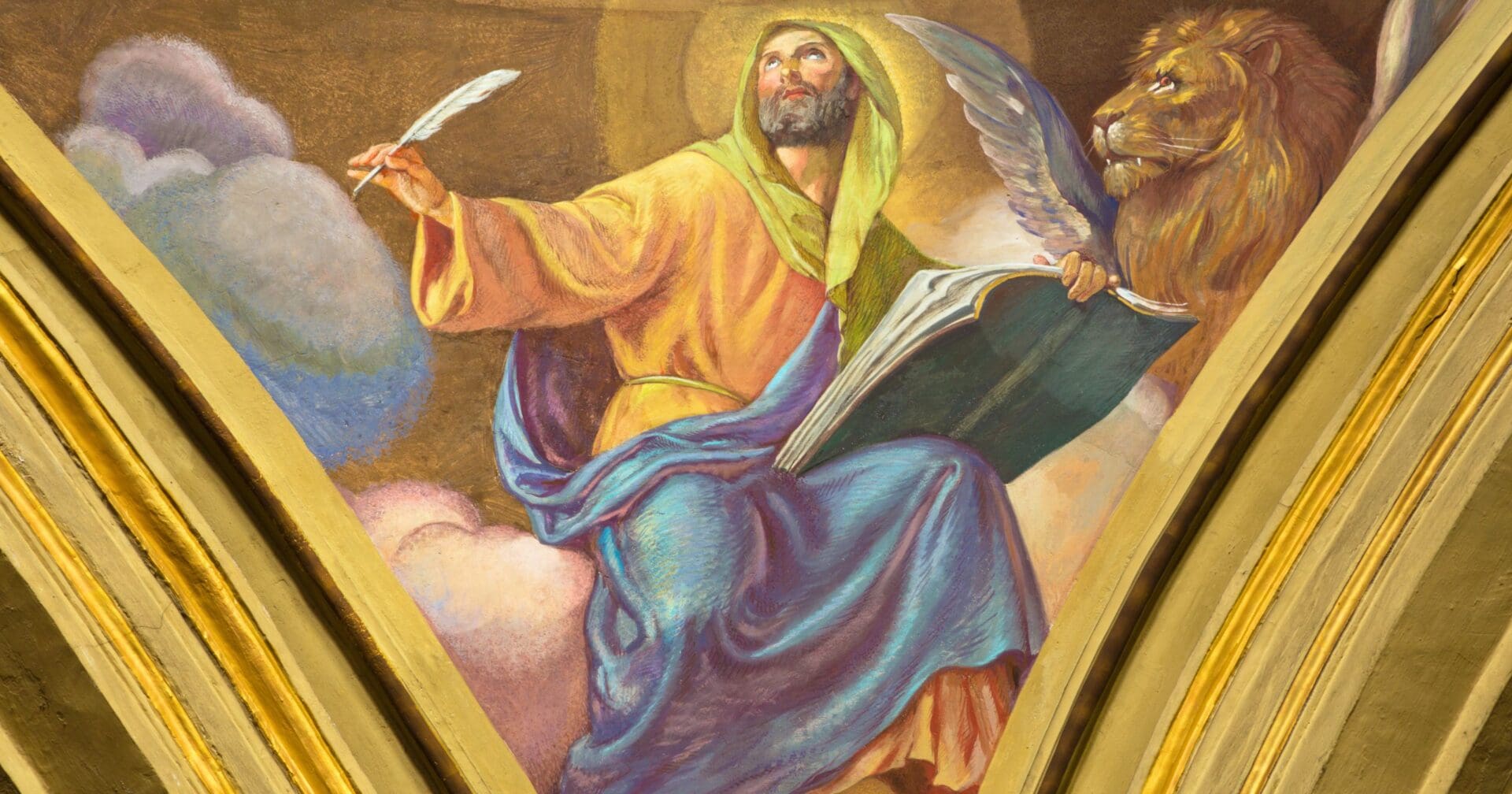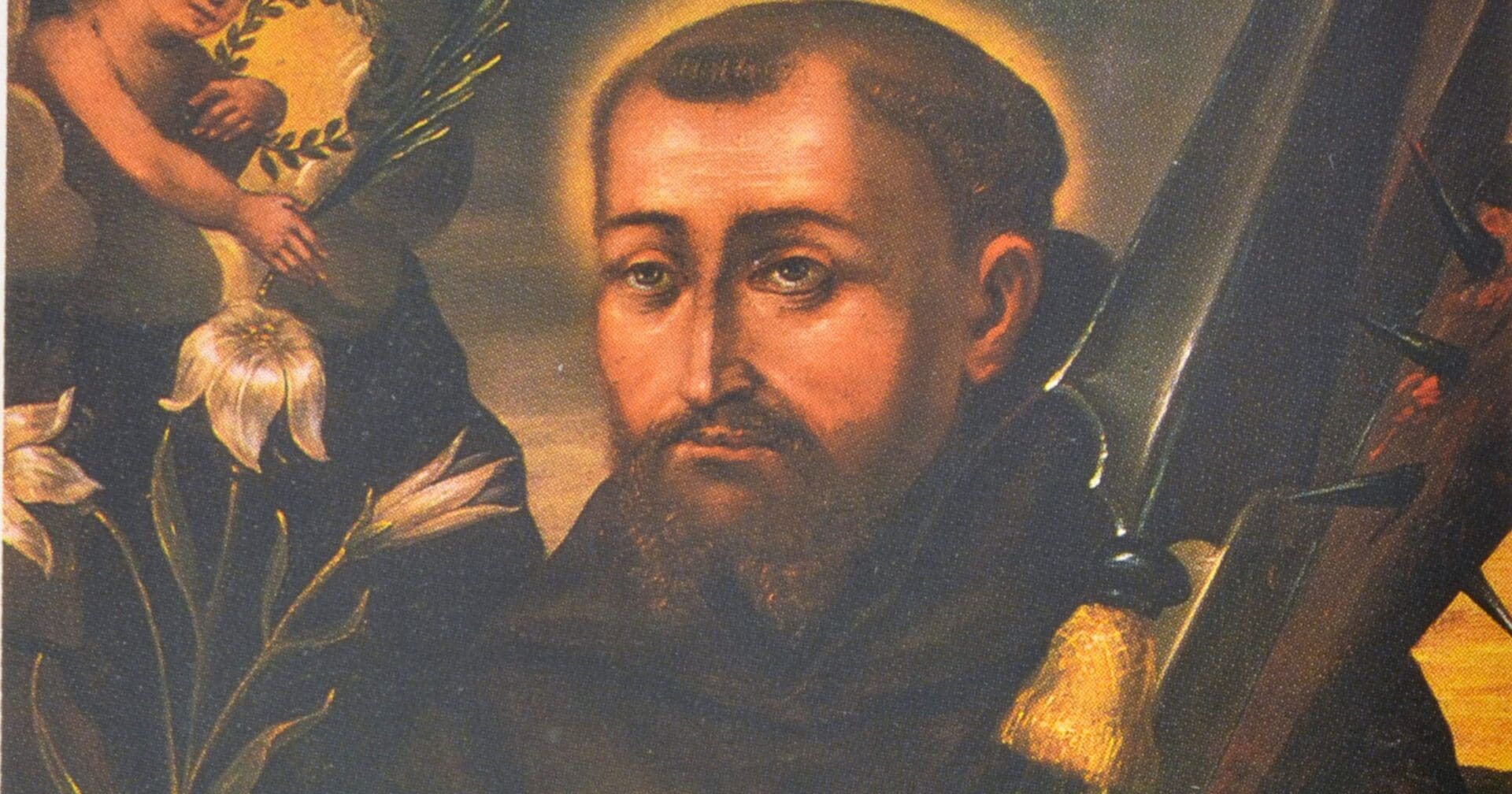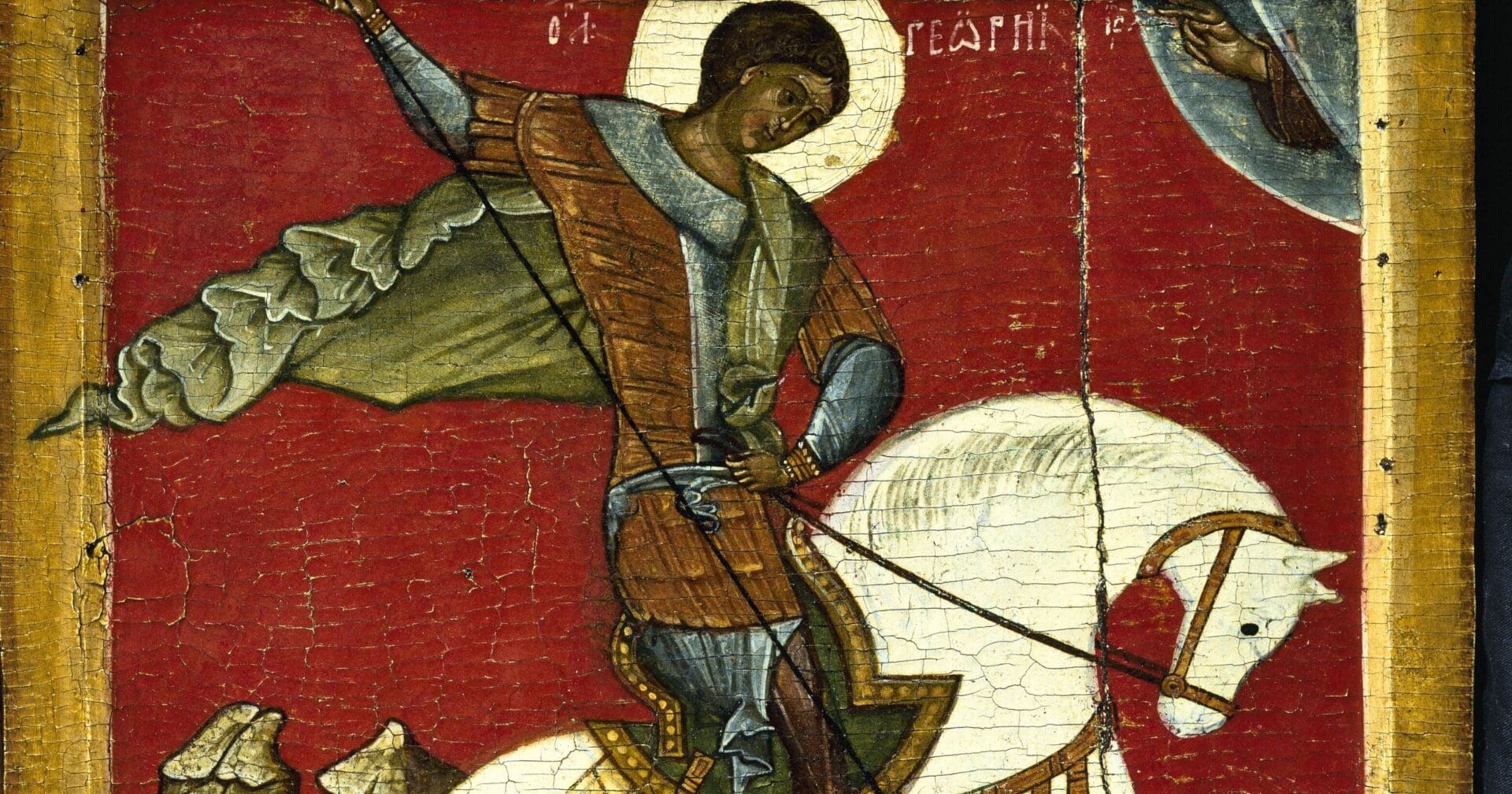
Last fall I began working at a Christian facility with a homey, country feel to it. The basic structures were all built in a log cabin style and the grounds were truly an oasis. One of their favorite lines is “It’s the best place to do nothing.” But as the fall became winter, those wooden structures began to feel awfully chilly. Something had to be done to keep our fingers from freezing on our keyboards.
During these days I grew in appreciation for an old fashioned wood fire. My first time trying to make one was a big fail, but after learning a few pointers from my coworkers, I got it to burn for an hour or so. I loved watching those flames dance around and enjoyed the instant warmth that accompanied it. Around the same time, my toddler had learned a new word, which fit so well. “Mommy, that’s so cozy!” she would tell me as I wrapped a blanket around her and read to her on my lap. The fire was indeed cozy as well.
But it also got me thinking about the fire within. As we read from the Acts of the Apostles during this Easter season, we witness again and again how their hearts burned within them. Nothing stopped them from preaching and teaching, sharing and caring. They tirelessly traveled miles upon miles by horseback or on foot, by land or sea to reach those who had not yet heard the Good News of Jesus Christ.
How is your fire burning? Is it like mine was those first couple tries? Does it ignite right away only to snuff out just as quickly? Does it take a little coaxing but eventually burn brightly? Is it a steady blaze that brings warmth to all around it?
Let us heed Jesus’ invitation today: “Do not let your hearts be troubled. You have faith in God; have faith also in me.” God can turn our flame into a burning fire. Our faith should be something we live, move and breathe. It should dictate our daily decisions and our everyday actions, for Jesus clearly states: “I am the way, and the truth and the life.”
May your flame burn brightly today and each day, so that others may feel the warmth of God’s love in you and glorify Him.
Daily Reading
Feast of Saint Mark, evangelist
Reading 1 1 Pt 5:5b-14 Beloved: Clothe yourselves with humilityin your dealings with one another, for: God opposes the proudbut bestows favor on the humble. So humble yourselves under the…
Saint of the Day
Saint Mark
Saint Mark the Evangelist, author of the the Gospel of Mark, Martyr, disciple and friend of St. Peter, and the first bishop of Alexandria. Patron saint of Venice.
The post Saint Mark appeared first on uCatholic.

Reading 1 1 Pt 5:5b-14
Beloved:
Clothe yourselves with humility
in your dealings with one another, for:
God opposes the proud
but bestows favor on the humble.
So humble yourselves under the mighty hand of God,
that he may exalt you in due time.
Cast all your worries upon him because he cares for you.
Be sober and vigilant.
Your opponent the Devil is prowling around like a roaring lion
looking for someone to devour.
Resist him, steadfast in faith,
knowing that your brothers and sisters throughout the world
undergo the same sufferings.
The God of all grace
who called you to his eternal glory through Christ Jesus
will himself restore, confirm, strengthen, and establish you
after you have suffered a little.
To him be dominion forever. Amen.
I write you this briefly through Silvanus,
whom I consider a faithful brother,
exhorting you and testifying that this is the true grace of God.
Remain firm in it.
The chosen one at Babylon sends you greeting, as does Mark, my son.
Greet one another with a loving kiss.
Peace to all of you who are in Christ.
Responsorial Psalm 89:2-3, 6-7, 16-17
R. (2) For ever I will sing the goodness of the Lord.
or:
R. Alleluia.
The favors of the LORD I will sing forever;
through all generations my mouth shall proclaim your faithfulness.
For you have said, “My kindness is established forever”;
in heaven you have confirmed your faithfulness.
R. For ever I will sing the goodness of the Lord.
or:
R. Alleluia.
The heavens proclaim your wonders, O LORD,
and your faithfulness, in the assembly of the holy ones.
For who in the skies can rank with the LORD?
Who is like the LORD among the sons of God?
R. For ever I will sing the goodness of the Lord.
or:
R. Alleluia.
Blessed the people who know the joyful shout;
in the light of your countenance, O LORD, they walk.
At your name they rejoice all the day,
and through your justice they are exalted.
R. For ever I will sing the goodness of the Lord.
or:
R. Alleluia.
Alleluia 1 Cor 1:23a-24b
R. Alleluia, alleluia.
We proclaim Christ crucified;
he is the power of God and the wisdom of God.
R. Alleluia, alleluia.
Gospel Mk 16:15-20
Jesus appeared to the Eleven and said to them:
“Go into the whole world
and proclaim the Gospel to every creature.
Whoever believes and is baptized will be saved;
whoever does not believe will be condemned.
These signs will accompany those who believe:
in my name they will drive out demons,
they will speak new languages.
They will pick up serpents with their hands,
and if they drink any deadly thing, it will not harm them.
They will lay hands on the sick, and they will recover.”
Then the Lord Jesus, after he spoke to them,
was taken up into heaven
and took his seat at the right hand of God.
But they went forth and preached everywhere,
while the Lord worked with them
and confirmed the word through accompanying signs.
– – –
Lectionary for Mass for Use in the Dioceses of the United States, second typical edition, Copyright © 2001, 1998, 1997, 1986, 1970 Confraternity of Christian Doctrine; Psalm refrain © 1968, 1981, 1997, International Committee on English in the Liturgy, Inc. All rights reserved. Neither this work nor any part of it may be reproduced, distributed, performed or displayed in any medium, including electronic or digital, without permission in writing from the copyright owner.
Daily Meditation
The Warmth of a Fire
Click here for daily readings Last fall I began working at a Christian facility with a homey, country feel to it. The basic structures were all built in a log…
Saint of the Day
Saint Mark
Saint Mark the Evangelist, author of the the Gospel of Mark, Martyr, disciple and friend of St. Peter, and the first bishop of Alexandria. Patron saint of Venice.
The post Saint Mark appeared first on uCatholic.
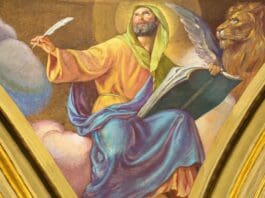
The texts of Acts and several epistles in the New Testament suggest that the individual named John Mark is the same as Mark referenced by St. Paul and St. Peter. Ancient sources do not dispute their identity. The connection is reinforced by Mark being the cousin of Barnabas, with whom the Mark of Acts had a significant relationship. Further, the Mark whom St. Peter calls his “son” likely refers to the son of Mary, a close associate of the Apostle in Jerusalem. In Roman contexts, he was predominantly known by the name Marcus. His mother played a pivotal role in the early Christian community in Jerusalem, hosting many gatherings, including a prayer meeting Peter attended after his prison release.
During the famine around AD 45-46, after serving in Jerusalem, Mark returned to Antioch with Barnabas and Saul. His role during their travels is described ambiguously as a helper, possibly even in preaching. However, Mark eventually left them, returning to Jerusalem, perhaps due to the hardships involved. His departure caused a rift between Paul and Barnabas, leading to their separation. Mark then appears alongside Paul and Peter in Rome years later, reinforcing his significance in early Christian missions.
St. Paul, while imprisoned in Rome around AD 59-61, mentions Mark as present and possibly planning to visit Asia Minor. Mark’s role was affirmed by Paul shortly before his death, requesting Timothy to bring Mark to Rome for his helpfulness in ministry. St. Peter also mentions Mark, calling him his son in a letter to churches in Asia Minor, indicating Mark’s established reputation and possible evangelistic work there.
Papias, as cited by Eusebius around AD 130, records that Mark was Peter’s interpreter and transcribed his teachings, albeit not in chronological order. This role is significant in understanding the origins of the Gospel attributed to Mark. Despite earlier ambiguities about his activities and role, later traditions, including those by Eusebius and Jerome, suggest that Mark founded the Church in Alexandria and eventually died there, though the exact circumstances of his death remain unclear. His symbol in Christian art is a lion, and his feast is celebrated on 25 April.
Editorial credit: Renata Sedmakova / Shutterstock.com
The post Saint Mark appeared first on uCatholic.
Daily Reading
Feast of Saint Mark, evangelist
Reading 1 1 Pt 5:5b-14 Beloved: Clothe yourselves with humilityin your dealings with one another, for: God opposes the proudbut bestows favor on the humble. So humble yourselves under the…
Daily Meditation
The Warmth of a Fire
Click here for daily readings Last fall I began working at a Christian facility with a homey, country feel to it. The basic structures were all built in a log…

It’s great to see some results for the work you put in.
For example, if you are trying to get to a healthier weight, it’s quite rewarding to know that your efforts to improve diet and increase exercise are working. If you’re trying to make a certain grade in school and get the “A”, it’s rewarding to know you put the work in to study and know the material. If you ace a presentation at work and are rewarded with a hard-earned raise, it’s great to know that the hours you put in were worth it.
In today’s Gospel, Jesus commands the Apostles to proclaim the Gospel to the whole world and to baptize new followers of Christ. Then Jesus gives an outline for how to know it’s being done correctly: demons will be cast out in his name, and many will be healed. If their hands fall upon a serpent or a poison, it won’t kill them.
Jesus knew the work of spreading the Gospel would be difficult. He knew it would cost all the Apostles, except John, their lives, and while some are still asked to give up their life for the sake of the Gospel today, it’s much fewer and far between, especially in the developed world. Still, the world finds plenty of ways for us to “pay” for spreading the Gospel: the loss of job and professional prospects, political persecution, loss of freedom of speech in some countries.
We know we are doing good things for the Kingdom of God, even when persecuted, but it’s still great to experience those “mountaintop” events in which we have confirmation we are doing great things for God. For example, when someone new joins the RCIA program, a child receives First Holy Communion, or someone surrenders their life to God after horrific pain.
As humans, we often need some encouragement to keep going. Jesus laid it all out for us, and even today, we still see not-quite-as-literal signs taking place. How are you spreading the Gospel? What signs do you see even today that God is still at work in the world? Let’s carry Jesus’ Great Commission forward, and be encouraged by the signs that God is at work even in a world of wars, famine, pain and sorrow.
Daily Reading
Feast of Saint Mark, evangelist
Reading 1 1 Pt 5:5b-14 Beloved: Clothe yourselves with humilityin your dealings with one another, for: God opposes the proudbut bestows favor on the humble. So humble yourselves under the…
Saint of the Day
Saint Mark
Saint Mark the Evangelist, author of the the Gospel of Mark, Martyr, disciple and friend of St. Peter, and the first bishop of Alexandria. Patron saint of Venice.
The post Saint Mark appeared first on uCatholic.

Reading I Acts 12:24—13:5a
The word of God continued to spread and grow.
After Barnabas and Saul completed their relief mission,
they returned to Jerusalem,
taking with them John, who is called Mark.
Now there were in the Church at Antioch prophets and teachers:
Barnabas, Symeon who was called Niger, Lucius of Cyrene,
Manaen who was a close friend of Herod the tetrarch, and Saul.
While they were worshiping the Lord and fasting, the Holy Spirit said,
“Set apart for me Barnabas and Saul
for the work to which I have called them.”
Then, completing their fasting and prayer,
they laid hands on them and sent them off.
So they, sent forth by the Holy Spirit,
went down to Seleucia
and from there sailed to Cyprus.
When they arrived in Salamis,
they proclaimed the word of God in the Jewish synagogues.
Responsorial Psalm 67:2-3, 5, 6 and 8
R. (4) O God, let all the nations praise you!
or:
R. Alleluia.
May God have pity on us and bless us;
may he let his face shine upon us.
So may your way be known upon earth;
among all nations, your salvation.
R. O God, let all the nations praise you!
or:
R. Alleluia.
May the nations be glad and exult
because you rule the peoples in equity;
the nations on the earth you guide.
R. O God, let all the nations praise you!
or:
R. Alleluia.
May the peoples praise you, O God;
may all the peoples praise you!
May God bless us,
and may all the ends of the earth fear him!
R. O God, let all the nations praise you!
or:
R. Alleluia.
Alleluia Jn 8:12
R. Alleluia, alleluia.
I am the light of the world, says the Lord;
whoever follows me will have the light of life.
R. Alleluia, alleluia.
Gospel Jn 12:44-50
Jesus cried out and said,
“Whoever believes in me believes not only in me
but also in the one who sent me,
and whoever sees me sees the one who sent me.
I came into the world as light,
so that everyone who believes in me might not remain in darkness.
And if anyone hears my words and does not observe them,
I do not condemn him,
for I did not come to condemn the world but to save the world.
Whoever rejects me and does not accept my words
has something to judge him: the word that I spoke,
it will condemn him on the last day,
because I did not speak on my own,
but the Father who sent me commanded me what to say and speak.
And I know that his commandment is eternal life.
So what I say, I say as the Father told me.”
- Readings for the Optional Memorial of Saint Fidelis of Sigmaringen, priest and martyr
– – –
Lectionary for Mass for Use in the Dioceses of the United States, second typical edition, Copyright © 2001, 1998, 1997, 1986, 1970 Confraternity of Christian Doctrine; Psalm refrain © 1968, 1981, 1997, International Committee on English in the Liturgy, Inc. All rights reserved. Neither this work nor any part of it may be reproduced, distributed, performed or displayed in any medium, including electronic or digital, without permission in writing from the copyright owner.
Daily Meditation
The Warmth of a Fire
Click here for daily readings Last fall I began working at a Christian facility with a homey, country feel to it. The basic structures were all built in a log…
Saint of the Day
Saint Mark
Saint Mark the Evangelist, author of the the Gospel of Mark, Martyr, disciple and friend of St. Peter, and the first bishop of Alexandria. Patron saint of Venice.
The post Saint Mark appeared first on uCatholic.
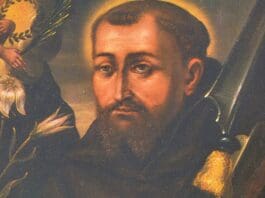
Saint Fidelis of Sigmaringen was born in 1577, at Sigmaringen, Prussia, of which town his father Johannes Rey was burgomaster; died at Sevis, 24 April, 1622. On the paternal side he was of Flemish ancestry. He pursued his studies at the University of Freiburg in the Breisgau, and in 1604 became tutor to Wilhelm von Stotzingen, with whom he travelled in France and Italy. In the process for Fidelis’s canonization Wilhelm von Stotzingen bore witness to the severe mortifications his tutor practised on these journeys.
In 1611 he returned to Freiburg to take the doctorate in canon and civil law, and at once began to practise as an advocate. But the open corruption which found place in the law courts determined him to relinquish that profession and to enter the Church. He was ordained priest the following year, and immediately afterwards was received into the Order of Friars Minor of the Capuchin Reform at Freiburg, taking the name of Fidelis. He has left an interesting memorial of his novitiate and of his spiritual development at that time in a book of spiritual exercises which he wrote for himself. This work was re-edited by Father Michael Hetzenauer, O.F.M. Cap., and republished in 1893 at Stuttgart under the title: “S. Fidelis a Sigmaringen exercitia seraphicae devotionis”. From the novitiate he was sent to Constance to finish his studies in theology under Father John Baptist, a Polish friar of great repute for learning and holiness. At the conclusion of his theological studies Fidelis was appointed guardian first of the community at Rheinfelden, and afterwards at Freiburg and Feldkirch. As a preacher his burning zeal earned for him a great reputation.
From the beginning of his apostolic career he was untiring in his efforts to convert heretics nor did he confine his efforts in this direction to the pulpit, but also used his pen. He wrote many pamphlets against Calvinism and Zwinglianism though he would never put his name to his writings. Unfortunately these publications have long been lost. Fidelis was still guardian of the community at Feldkirch when in 1621 he was appointed to undertake a mission in the country of the Grisons with the purpose of bringing back that district to the Catholic Faith. The people there had almost all gone over to Calvinism, owing partly to the ignorance of the priests and their lack of zeal.
In 1614 the Bishop of Coire had requested the Capuchins to undertake missions amongst the heretics in his diocese, but it was not until 1621 that the general of the order was able to send friars there. In that year Father Ignatius of Sergamo was commissioned with several other friars to place himself at the disposal of this bishop for missionary work, and a similar commission was given to Fidelis who however still remained guardian of Feldkirche. Before setting out on this mission Fidelis was appointed by authority of the papal nuncio to reform the Benedictine monastery at Pfafers. He entered upon his new labours in the true apostolic spirit. Since he first entered the order he had constantly prayed, as he confided to a fellow-friar, for two favours: one, that he might never fall into mortal sin; the other, that he might die for the Faith. In this Spirit he now set out, ready to give his life in preaching the Faith. He took with him his crucifix, Bible, Breviary, and the book of the rule of his order; for the rest, he went in absolute poverty, trusting to Divine Providence for his daily sustenance. He arrived in Mayenfeld in time for Advent and began at once preaching and catechizing; often preaching in several places the same day. His coming aroused strong opposition and he was frequently threatened and insulted. He not only preached in the Catholic churches and in the public streets, but occasionally in the conventicles of the heretics. At Zizers one of the principal centres of his activity, he held conferences with the magistrates and chief townsmen, often far into the night. They resulted in the conversion of Rudolph de Salis, the most influential man in the town, whose public recantation was followed by many conversions.
Throughout the winter Fidelis laboured indefatigably and with such success that the heretic preachers were seriously alarmed and set themselves to inflame the people against him by representing that his mission was political rather than religious and that he was preparing the way for the subjugation of the country by the Austrians. During the Lent of 1622 he preached with especial fervour. At Easter he returned to Feldkirch to attend a chapter of the order and settle some affairs of his community. By this time the Congregation of the Propaganda had been established in Rome, and Fidelis was formally constituted by the Congregation, superior of the mission in the Grisons. He had, however, a presentiment that his laborers would shortly be brought to a close by a martyr’s death. Preaching a farewell sermon at Feldkirch he said as much. On re-entering the country of the Grisons he was met everywhere with the cry: “Death to the Capuchins!” On 24 April, being then at Grusch, he made his confession and afterwards celebrated Mass and preached. Then he set out for Sevis. On the way his companions noticed that he was particularly cheerful. At Sevis he entered the church and began to preach, but was interrupted by a sudden tumult both within and without the church. Several Austrian soldiers who were guarding the doors of the church were killed and Fidelis himself was struck. A Calvinist present offered to lead him to a place of security. Fidelis thanked the man but said his life was in the hands of God. Outside the church he was surrounded by a crowd led by the preachers who offered to save his life if he would apostatize. Fidelis replied: “I came to extirpate heresy, not to embrace it”, whereupon he was struck down. He was the first martyr of the Congregation of Propaganda. His body was afterwards taken to Feldkirch and buried in the church of his order, except his head and left arm, which were placed in the cathedral at Coire. He was beatified in 1729, and canonized in 1745. St. Fidelis is usually represented in art with a crucifix and with a wound in the head; his emblem is a bludgeon. His feast is kept on 24 April.
Editorial credit: neftali / Shutterstock.com
The post Saint Fidelis of Sigmaringen appeared first on uCatholic.
Daily Reading
Feast of Saint Mark, evangelist
Reading 1 1 Pt 5:5b-14 Beloved: Clothe yourselves with humilityin your dealings with one another, for: God opposes the proudbut bestows favor on the humble. So humble yourselves under the…
Daily Meditation
The Warmth of a Fire
Click here for daily readings Last fall I began working at a Christian facility with a homey, country feel to it. The basic structures were all built in a log…

Today Jesus tells us about Himself and his Father in heaven. The word that seems to jump out is “light”. He tells us that He and the Father are one, and that if we know the Father we know Him, and if we know Him we know the Father. If you can totally understand that then you deserve a special place on this earth. When you think of the word light, what comes to mind? We may not think about God at first. Why? As human beings, we like to put a face on every name that we hear. So it’s natural for us to try and put a face on God. As a young boy I would see lots of pictures of Jesus. Then I would be told about his Father. But, there were no pictures of the Father, so I would conjure up images in my mind of an old man sitting on a cloud looking down on earth and helping his son Jesus.
Back to Jesus telling us that he is Light. What is light? If we had to choose between light and darkness, we would most likely choose the light. There is a lot to be said about light. First of all, it takes away the darkness. Taking away the darkness makes us feel better. Where would we be without light? For one thing we would not eat. Crops need light to grow and to be harvested. We would not be able to walk or drive because we couldn’t see where we are going. When we think of God as being Light it takes on a whole new dimension!
Have you ever met someone whose face radiates light? Chances are they are full of God’s Spirit. My wife and I witnessed this when our daughters became missionaries. We would visit their mother houses and the young ladies there were beaming with light. It was a sight to behold. It shouldn’t surprise us if we believe that God is light, then a person of God would also be full of light. I often pray that the Lord would allow me to be light to those people he places before me.
Have you ever noticed that in religious art that has a saint painted on it, the saint’s face is usually flooded with light? So, keep your eyes open and perhaps you will meet a person of light. Is that possible for us? Of course it is! All we have to do is give ourselves totally to God! We will have to get rid of a lot of stuff and dismiss distractions for that to happen. Of course, there is more. But, by the time you get to that point you will already know what you need to do. Happy journey!
Serving with joy!
Daily Reading
Feast of Saint Mark, evangelist
Reading 1 1 Pt 5:5b-14 Beloved: Clothe yourselves with humilityin your dealings with one another, for: God opposes the proudbut bestows favor on the humble. So humble yourselves under the…
Saint of the Day
Saint Mark
Saint Mark the Evangelist, author of the the Gospel of Mark, Martyr, disciple and friend of St. Peter, and the first bishop of Alexandria. Patron saint of Venice.
The post Saint Mark appeared first on uCatholic.

Reading 1 Acts 11:19-26
Those who had been scattered by the persecution
that arose because of Stephen
went as far as Phoenicia, Cyprus, and Antioch,
preaching the word to no one but Jews.
There were some Cypriots and Cyrenians among them, however,
who came to Antioch and began to speak to the Greeks as well,
proclaiming the Lord Jesus.
The hand of the Lord was with them
and a great number who believed turned to the Lord.
The news about them reached the ears of the Church in Jerusalem,
and they sent Barnabas to go to Antioch.
When he arrived and saw the grace of God,
he rejoiced and encouraged them all
to remain faithful to the Lord in firmness of heart,
for he was a good man, filled with the Holy Spirit and faith.
And a large number of people was added to the Lord.
Then he went to Tarsus to look for Saul,
and when he had found him he brought him to Antioch.
For a whole year they met with the Church
and taught a large number of people,
and it was in Antioch that the disciples
were first called Christians.
Responsorial Psalm 87:1b-3, 4-5, 6-7
R. (117:1a) All you nations, praise the Lord.
or:
R. Alleluia.
His foundation upon the holy mountains
the LORD loves:
The gates of Zion,
more than any dwelling of Jacob.
Glorious things are said of you,
O city of God!
R. All you nations, praise the Lord.
or:
R. Alleluia.
I tell of Egypt and Babylon
among those who know the LORD;
Of Philistia, Tyre, Ethiopia:
“This man was born there.”
And of Zion they shall say:
“One and all were born in her;
And he who has established her
is the Most High LORD.”
R. All you nations, praise the Lord.
or:
R. Alleluia.
They shall note, when the peoples are enrolled:
“This man was born there.”
And all shall sing, in their festive dance:
“My home is within you.”
R. All you nations, praise the Lord.
or:
R. Alleluia.
Alleluia Jn 10:27
R. Alleluia, alleluia.
My sheep hear my voice, says the Lord;
I know them, and they follow me.
R. Alleluia, alleluia.
Gospel Jn 10:22-30
The feast of the Dedication was taking place in Jerusalem.
It was winter.
And Jesus walked about in the temple area on the Portico of Solomon.
So the Jews gathered around him and said to him,
“How long are you going to keep us in suspense?
If you are the Christ, tell us plainly.”
Jesus answered them, “I told you and you do not believe.
The works I do in my Father’s name testify to me.
But you do not believe, because you are not among my sheep.
My sheep hear my voice;
I know them, and they follow me.
I give them eternal life, and they shall never perish.
No one can take them out of my hand.
My Father, who has given them to me, is greater than all,
and no one can take them out of the Father’s hand.
The Father and I are one.”
- Readings for the Optional Memorial of Saint Adalbert, bishop and martyr
- Readings for the Optional Memorial of Saint George, martyr
– – –
Lectionary for Mass for Use in the Dioceses of the United States, second typical edition, Copyright © 2001, 1998, 1997, 1986, 1970 Confraternity of Christian Doctrine; Psalm refrain © 1968, 1981, 1997, International Committee on English in the Liturgy, Inc. All rights reserved. Neither this work nor any part of it may be reproduced, distributed, performed or displayed in any medium, including electronic or digital, without permission in writing from the copyright owner.
Daily Meditation
The Warmth of a Fire
Click here for daily readings Last fall I began working at a Christian facility with a homey, country feel to it. The basic structures were all built in a log…
Saint of the Day
Saint Mark
Saint Mark the Evangelist, author of the the Gospel of Mark, Martyr, disciple and friend of St. Peter, and the first bishop of Alexandria. Patron saint of Venice.
The post Saint Mark appeared first on uCatholic.
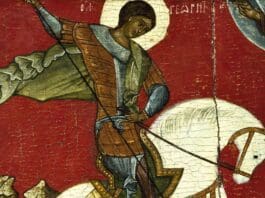
Pictures of Saint George usually show him killing a dragon to rescue a beautiful lady. The dragon stands for wickedness. The lady stands for God’s holy truth. St. George was a brave martyr who was victorious over the devil.
Born, in Syria Palaestina, he was a soldier in the army of the Roman Emperor Diocletian, and he was one of the Emperor’s favorite soldiers. Now Diocletian was a pagan and a bitter enemy to the Christians. He put to death every Christian he could find. St. George was a brave Christian, a real soldier of Christ. Without fear, he went to the Emperor and sternly scolded him for being so cruel. Then he gave up his position in the Roman army. For this he was tortured in many terrible ways and finally beheaded.
So boldly daring and so cheerful was St. George in declaring his Faith and in dying for it that Christians felt courage when they heard about it. Many songs and poems were written about this martyr. Soldiers, especially, have always been devoted to him.
He is the patron of many countries including, England, Palestine, Portugal, Malta, and more. He is a patron of Soldiers and one the 14 Holy Helpers.
Photo credit: Public Domain via Wikimedia Commons
The post Saint George appeared first on uCatholic.
Daily Reading
Feast of Saint Mark, evangelist
Reading 1 1 Pt 5:5b-14 Beloved: Clothe yourselves with humilityin your dealings with one another, for: God opposes the proudbut bestows favor on the humble. So humble yourselves under the…
Daily Meditation
The Warmth of a Fire
Click here for daily readings Last fall I began working at a Christian facility with a homey, country feel to it. The basic structures were all built in a log…
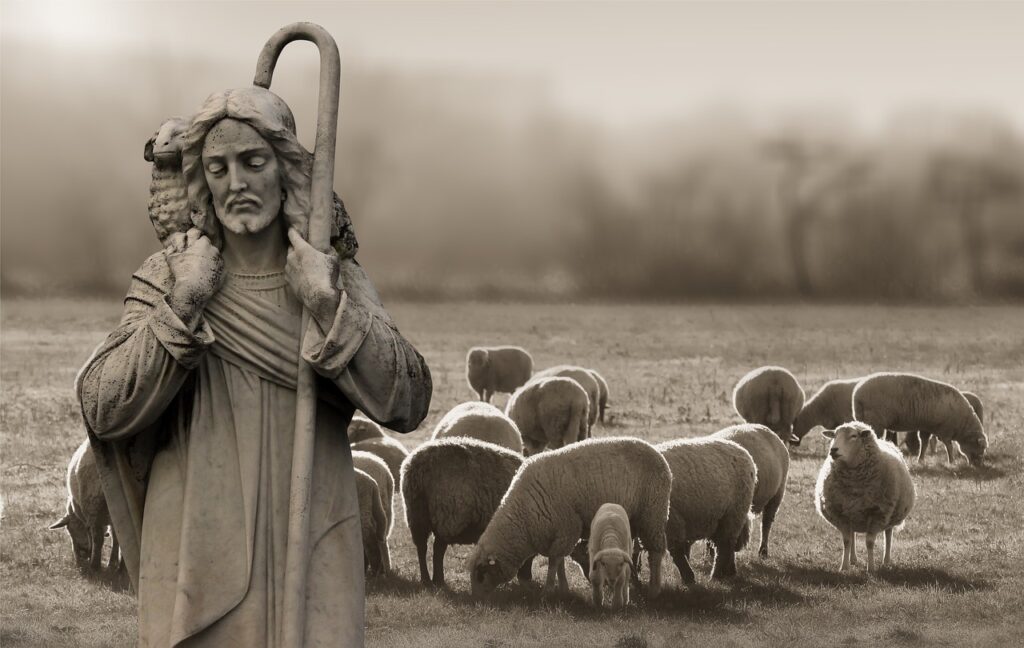
“My sheep hear my voice; I know them, and they follow me. I give them eternal life, and they shall never perish.”
In the time of Jesus, the families of a village often kept their herds of sheep together in a common pen. In the morning the shepherds would come and call their own sheep by name. The shepherd had such an intimate knowledge of his sheep and a genuine love for them, that he would call them individually to follow him to green pastures and streams of running water.
Following the shepherd, then, is a matter of love and being cared for. It is a relationship of trust and belonging. When Jesus speaks of his followers he refers often to shepherding, because he wants us to know how much he longs for us to willingly adhere to him with all our being and to trust him to provide for us. Sheep know they belong to a shepherd. They are named, known, and counted at the end of every single day before settling down for the night.
There are two ways a shepherd can lead his flock. Most often we see the shepherd walking in front of the sheep. There the shepherd can recognize danger and lead the sheep along the safest path. At other times, a shepherd leads his flock from behind. In this case the shepherd is driving the sheep toward the destination and making sure that they don’t dilly-dally along the way, wandering off after some distraction or other.
In what area of your life is Jesus desiring to shepherd you more closely? Is there a destination or goal on the horizon to which he is drawing your heart? Have you found patterns of distraction in your life which keep you dilly-dallying along the way? Can you hear your Shepherd’s voice? Do you recognize Him when he calls your name?
Daily Reading
Feast of Saint Mark, evangelist
Reading 1 1 Pt 5:5b-14 Beloved: Clothe yourselves with humilityin your dealings with one another, for: God opposes the proudbut bestows favor on the humble. So humble yourselves under the…
Saint of the Day
Saint Mark
Saint Mark the Evangelist, author of the the Gospel of Mark, Martyr, disciple and friend of St. Peter, and the first bishop of Alexandria. Patron saint of Venice.
The post Saint Mark appeared first on uCatholic.






